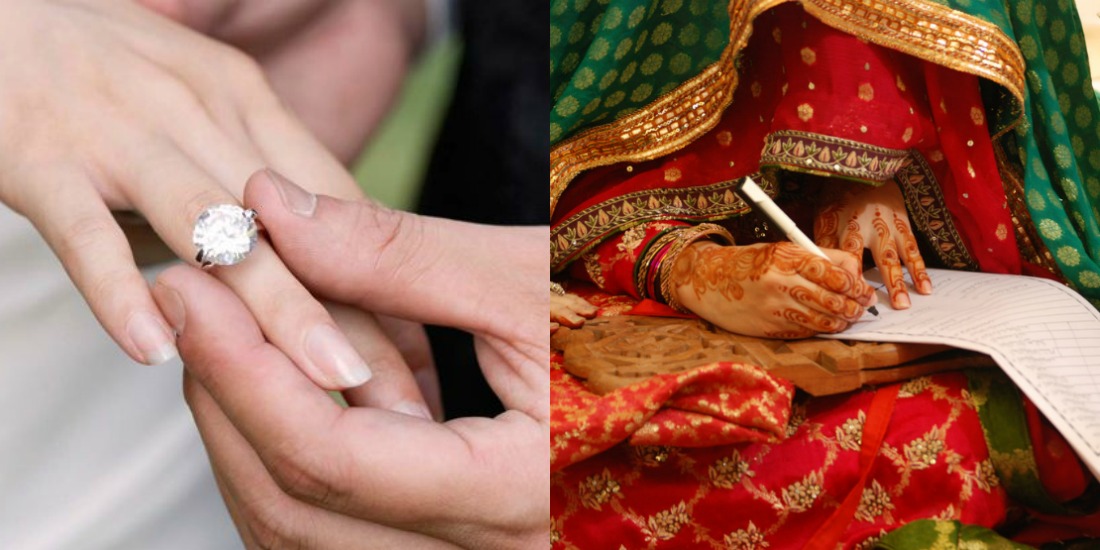Islam, considered to be the most perfect of all religions in the world, is built and followed around different steps that have been mentioned in the Holy Quran and the Hadiths of the Prophet Muhammad (PBUH). With the defined structure comes a lot of questions. One of the queries is regarding women changing their name after marriage, does Islam permit it?
[adinserter block =”3″]
Name change after marriage in Islam
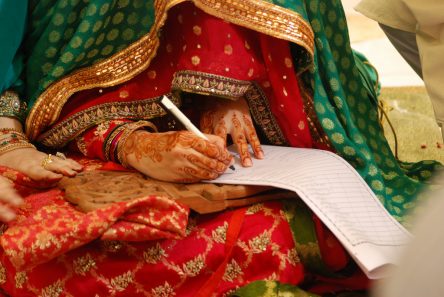
Source: flickr.com
As per Islamic traditions, a person’s name is always linked to their father’s name. This is the reasons our Sahabas always connected their names to their father’s, for example, Umar bin Khattab, Abdullah bin Abbas, Zaid bin Arqam – bin denominates ‘son of’. As for the daughters, their names and lineage is linked to their fathers as well. For example, Zainab binte Jaish, Sawdah binte Zaniah- binte denominates ‘daughter of’.
It is pertinent to note that even the Prophet Muhammad (PBUH)’s wives never linked their name to the Prophet. Their names were connected to their fathers with the help of ‘binte’ – thus, clearly stating that the Prophet Muhammad (PBUH)’s wives did not change their names after marriage but kept their original birth names, which connected them to their father’s lineage.
The argument here does not state that it is compulsory to change the woman’s name after she is married, neither is the argument that a wife cannot change her name after marriage if she wants to. In the days of the Prophet Muhammad (PBUH), the early days of Islam, a woman kept her father’s name, but was referred to as ‘the wife of’ after she was marriage – for example, Zainab binte Jaysh zawjun Nabi, which means “Zainab, the daughter of Jaysh, who is the wife of the Prophet (PBUH).
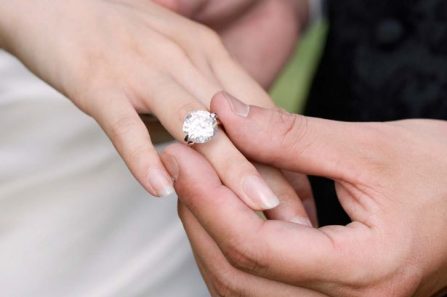
Source: giadenvietnam.com
However, some school of thoughts disagree and say that changing the wife’s name to her husband’s is haram in Islam. Islamic source that backs that argument is:
“(وقال النبي صلى الله عليه وسلّم : مَنْ انْتَسَبَ إِلَى غَيْرِ أَبِيهِ .. فَعَلَيْهِ لَعْنَةُ اللَّهِ وَالْمَلائِكَةِ وَالنَّاسِ أَجْمَعِينَ (رواه ابن ماجة ,كتاب الحدود,2707 وهو في صحيح الجامع 6104”)
The Prophet (PBUH) said: “Whoever calls himself by other than his father’s name (or attributes himself to someone other than his father), will be cursed by Allah, the angels, and all the people.” (Reported by Ibn Maajah, Book of punishments, 2707)
Modern-day traditions and necessities of name changing after marriage
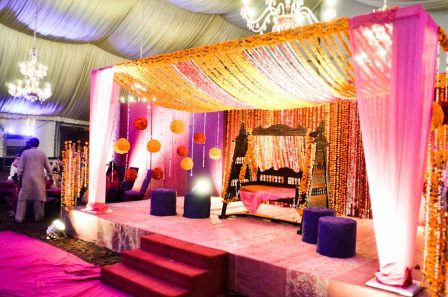
Source: trendmod.org
However, in the modern day, wives do take their names after their husbands. Mostly it is because of choice and that in our society, the concept of marriage is that once the daughter leaves home, she is somebody else’s responsibility altogether. Thus, when she has a new home, she is bound to have a new name attached to her, which soon becomes her new identity.
It is with this view of having a child carry the father’s name, that many countries have adopted the trend of giving the wife the husband’s surname. This occurs automatically, through the register of a marriage and we see that it has become a common trend in the world today. Hence, if the wife’s surname is Mohammed and the husband’s surname is Ali, people will normally refer to the couple as Mr. & Mrs. Ali.
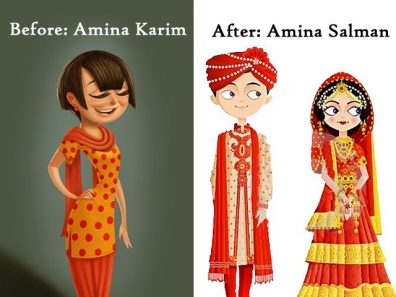
Source: blogs.com
If the wife does not take her husband’s surname, it automatically means that their child’s name would be different from that of his mother. In such a case, a lot of problems come up, with different surnames of the mother and child, especially when it is in regards to legal documentation or school procedures – which does hurt the child in the long run.
[adinserter block =”10″]
According to Mufti Waseem Khan, “The gist of this entire explanation is that while taking the husband’s surname is not compulsory (for a wife) in Islamic teachings, it cannot be said that it is opposing to Islam. Instead, it is one which has many benefits and has been established as a norm in many countries of the world, including ours.
At the same time, if a wife chooses not to take the husband’s surname, then she is not blameworthy and sinful, seeing that she has not violated any Islamic teaching.“
An alternate solution to the issue is the change of name on legal documents. On these, a woman can have her husband’s name written and remove her father’s name, while keeping her original name which was given to her before her marriage, since there are two options for women when they get their NIC’s made.
Also Read: This Is What Islam Says About Forbidden Marriages – What Is Halal And What Is Haram
What do you think about the story? Tell us in the comment section below.

